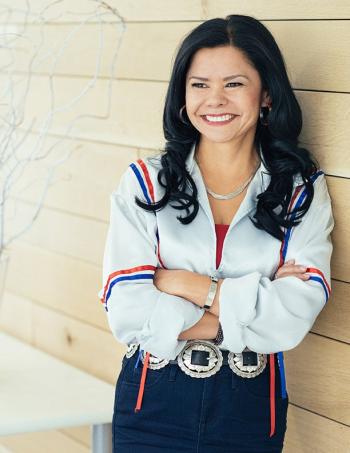Image Caption
The University of Saskatchewan (U of S) announced June 21 that Jacqueline Ottmann will serve as the university’s first Vice-Provost, Indigenous Engagement beginning Oct. 1.
Ottmann is a U of S alumna, Anishinaabe (Saulteaux) and a member of Saskatchewan’s Fishing Lake First Nation. She is currently the director of Indigenous Education Initiatives and an associate professor in the Werklund School of Education at the University of Calgary and also serves as co-chair of U of C’s Indigenous Strategy.
Ottmann said she is looking forward to returning to her home province and to the university where she earned her master’s in education (2002) and her PhD (2005) in the Department of Educational Administration in the U of S College of Education.
Ottmann is a member of a number of national post-secondary organizations including a representative-at-large (Aboriginal) on the executive committee of the Canadian Association of University Teachers (CAUT).
“Because I am an alumna, I have kept in touch with what was happening at the University of Saskatchewan in terms of their Indigenization and decolonization initiatives and processes, and I have been encouraged by the leadership that they have taken in this over the years.”
Ottmann will lead the university’s commitment to the Truth and Reconciliation Commission’s calls to action for post-secondary institutions.
“We are extremely excited to bring back Dr. Ottmann to take a senior leadership role in focusing on Indigenous scholarship and student success on campus while also helping us engage and connect with the community,” said U of S President Peter Stoicheff.
“We are encouraged to be attracting and graduating more Aboriginal students than ever before, and that certainly is a good measure of success. However, there is much more work to be done and we look forward to Jacqueline’s leadership as we strive to be the best place we can possibly be for Indigenous students and communities in the province and across the country.”

